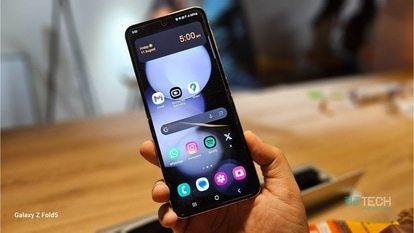Go Gander: new search engine tracks physical world
Imagine knowing how many people are in a coffee shop and how long it will take to get served, just by glancing at your smartphone, or being certain that there will be a seat on the bus or train when it arrives.

Imagine knowing how many people are in a coffee shop and how long it will take to get served, just by glancing at your smartphone, or being certain that there will be a seat on the bus or train when it arrives. Gander is a search engine that aims to make all of this and more possible, by letting users search their physical world in the same way that they currently search for web pages on the net.
'In the simplest terms, Gander is a distributed search engine for the mobile networks of the future,' begins Jonas Michel, PhD student at the University of Texas and one of the project's co-founders. In a phone interview, he explains that its development is in part due to the increasing ability consumers have to search their physical surroundings via their smartphone.
'Today there are location-based services on our mobile phones to look up nearby restaurants, find friends, check in at restaurants or read other people's reviews about the food we're about to eat or places we're about to go to,' he continues.
Physical spaces online
As revolutionary as this may already be, with the growing move towards the 'internet of things' everything is about to get a lot more revolutionary.
'The internet of things is a big buzzword right now. It envisions this concept of putting everything online and this concept is really exploding to the point where even your dog or your cat or your shoes...everything could be accessible digitally in some way,' says Michel.
And like the modern internet, without some means of searching for and finding information, all of these things in the physical world may be online but they will exist in isolation.
'So the motivation for Gander is that while in the future, if our physical spaces are accessible in the same kind of way [as the modern internet] -- digitally, either through our computers or through our mobile phones -- then people will probably want to search that space for relevant and specific information as they walk around and go about their daily lives,' says Michel.
Sensors measuring movement and sound
Gander, set to go into Beta testing mode in the coming weeks, is currently restricted to the University of Texas campus. It consists of sensors that measure movement and sound, a mobile app, and a back-end -- that is, the software, algorithms and mind-bendingly complex mathematics that make the whole thing possible.
As Michel elaborates: 'We've built sensors into coffee shops on our college campus that can measure the life of a line...We've put sound sensors in study spaces to capture how loud and crowded the spaces are. People can use the mobile application to search these spaces to find, for example a quiet study space or check in to see if they have enough time to get a latte before class.'
The use of sensors raises the issue of privacy, a buzzword equally as popular as the internet of things in the wake of Instagram and Facebook Graph.
However, Michel is quick to point out that the system is designed to be anonymous: 'We've demoed little applications over the last year and we seem to get two reactions -- 'wow this is really cool' and they can see the trajectory and envisage other scenarios where it would be useful; or they are frightened and think 'I don't want other people to be finding out things about me, what type of information about me is going to be exposed?' But the point is that all of the sensors that we're using are truly anonymous. The sound sensors don't record individual noises, they register the volume levels that they hear. The occupancy sensors measure movement in one direction or the other to calculate how many people are passing through a doorway.'
Future interest
Positive user feedback is a good sign an idea has potential, but interest from Google is a better sign.
'Yes, we've had attention from Google recently. We landed some funding from them to continue the project for another year. I guess we've caught their eye. I don't know if they have plans for us or if they're kind of just investing in the idea itself for the time being,' says Michel, who also envisages that a technology like Google Glass (the company's augmented reality headset) would be a good platform for Gander's features.
It has already taken Gander two years to get to where it is. Isn't Michel worried that with the rate at which technology is developing that it could be out of date by the time it enters the mainstream? 'No, not really. The use cases and the scenarios that we're targeting don't exist yet but we're very intelligently guessing that they will exist in the future. I think that within the next 10 years we will see something like this emerge in the consumer space.'
So, after it goes live around the campus, what's next for Gander? 'We hope to deploy it somewhere like a public music festival where there are a lot of people, everyday people not engineering students or programmers at a university. When we were doing the high-level development for the project two years ago, one of our models was a theme park environment where people visiting Disneyworld, for example, could search the environment around them.'
Catch all the Latest Tech News, Mobile News, Laptop News, Gaming news, Wearables News , How To News, also keep up with us on Whatsapp channel,Twitter, Facebook, Google News, and Instagram. For our latest videos, subscribe to our YouTube channel.


























